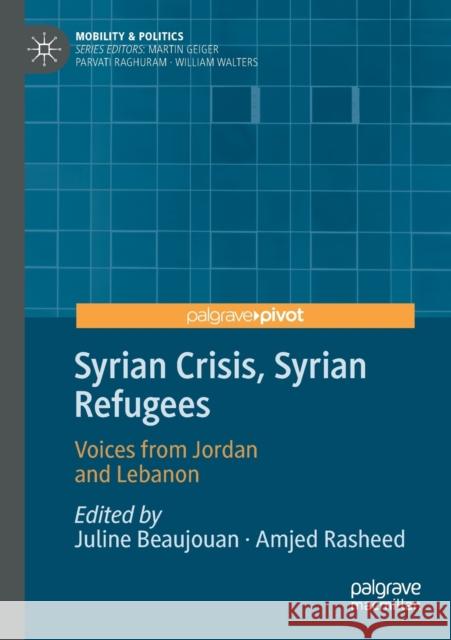Syrian Crisis, Syrian Refugees: Voices from Jordan and Lebanon » książka
topmenu
Syrian Crisis, Syrian Refugees: Voices from Jordan and Lebanon
ISBN-13: 9783030350185 / Angielski / Miękka / 2020 / 163 str.
Syrian Crisis, Syrian Refugees: Voices from Jordan and Lebanon
ISBN-13: 9783030350185 / Angielski / Miękka / 2020 / 163 str.
cena 241,50
(netto: 230,00 VAT: 5%)
Najniższa cena z 30 dni: 231,29
(netto: 230,00 VAT: 5%)
Najniższa cena z 30 dni: 231,29
Termin realizacji zamówienia:
ok. 22 dni roboczych.
ok. 22 dni roboczych.
Darmowa dostawa!
Kategorie BISAC:
Wydawca:
Palgrave Pivot
Seria wydawnicza:
Język:
Angielski
ISBN-13:
9783030350185
Rok wydania:
2020
Wydanie:
2020
Numer serii:
000768680
Ilość stron:
163
Waga:
0.23 kg
Wymiary:
21.01 x 14.81 x 0.99
Oprawa:
Miękka
Wolumenów:
01
Dodatkowe informacje:
Wydanie ilustrowane











